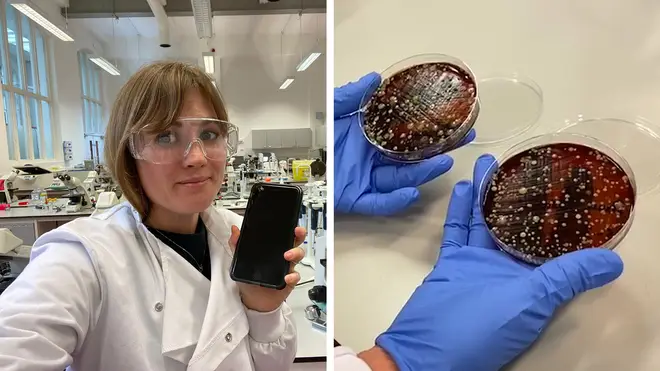
Paul Brand 10am - 12pm
10 March 2020, 11:15 | Updated: 7 June 2023, 08:56
Could you catch coronavirus from your mobile phone? LBC took an iPhone to a virology lab to see what bacteria and viruses are growing on it.
The government's number one message to combat the spread of coronavirus is for people to wash their hands more often than usual for at least 20 seconds.
But will that work if we then pick up our phone straight away, which we haven't cleaned?
LBC's Senior Correspondent Rachael Venables took her phone to the lab of Sally Jane Cutler, a professor in Medical Microbiology at University of East London to test what is living on her device.
Professor Cutler tested her phone alongside Rachael's to see if her's is cleaner.

"It's disgusting, isn't it? There are lots of lots of different types of microbes growing on those plates. And my phone is just as bad as the other one.
"These are all different organisms. All those tiny dots are thousands and thousands of microorganisms which are growing in a colony. It started from one separate organism and it's grown and grown and grown.
"All the different colours are different types of organisms. You've got some small ones, larger ones, some that have got rugged edges. We've got at least 10 different types of organisms."
Do these results come as a surprise to her?
"There are microbes everywhere. High-touch surfaces like a mobile phone will always have something growing on it," she concluded.
"It just shows the level of microbes that are out there. It's not surprising that our mobile phones are not sterile."
"Obviously, you don't want to immerse your phone in disinfectant, which would be great for cleaning up the phone.
"It's best to get an anti-septic wipe to clean the surface of the phone. That will reduce a lot of the bacteria that are going to be there.
"You will need to check whether it's got anti-viral properties as well, because bacteria and viruses are different things and some things will kill bacteria, but not viruses."